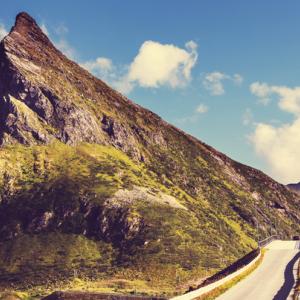Posts By This Author
Beauty Exhaustion: Discipleship and Getting Outside
St. Bonaventure (d. 1274) once said, “Whoever is not enlightened by the splendor of created things is blind; whoever is not aroused by the sound of their voice is deaf; whoever does not praise God for all these creatures is mute; whoever after so much evidence does not recognize the Maker of all things, is an idiot.”[1]
If Bonaventure was right, then we’re all idiots.
The first time I travelled to Rome was an experience second to none. Never, in my young travels, had I ventured to a place so layered with history and significance around every corner that one literally couldn’t escape it. Even the Roman suburbs were historical. We were amped to see it all. Our approach was simple: we would incrementally make our way through the city over the course of 10 days with a plan that would make any explorer proud.
The sheer magnitude of historical and ecclesiastical sites to be seen in the city was overwhelming at best. Then it happened. I had a unique moment near the end of the trip. We’d been walking nonstop through museums, ruins, churches; we’d even heard the pope preach a sermon, when I started to lose my attention. Many travelers or art buffs will resonate with this — there came a point during our endless walk through Rome where I had seen so much beauty and splendor and history that I just started taking it all for granted. The last two days consisted of me walking around blindly and numbly, room-to-room, ruin-to-ruin, as though what I stood before was of little or no value.
I called it “beauty exhaustion.”
Four Ways to Talk About the Environment as an Evangelical
When facing a crisis, silence is certainly easiest. But silence isn’t best. As we face some very challenging environmental issues, evangelicals must learn to begin to discuss the environmental crisis with creativity and integrity. Whether it’s because we know we play an integral role in the healing of the world, in agreement with Wendell Berry, who says our fate is “mingled in the fate of the world.” Or, because we’ve come to see our responsibility to care for God’s creation as a central aspect of our love of Jesus Christ. Regardless of our reason — silence can’t be our policy.
In a very real sense, the easiest way for us to deal with the realities of the 21st century ecological crisis is practicing a kind of mutual pretense. That’s the easiest thing to do. Despite the humming knowledge that hard things await, we will talk about anything without actually talking about what is going on. More than many, I know that this can be the practice of evangelical Christianity in which I am rooted. We’ll talk about the return of Jesus, about theology, about church practice, anything but what’s actually going on in our world.
Sin and Simplicity -- Why Jesus Always Borrowed Stuff
Every family, including my own, has its “keepers” and “givers.” There are those who keep and hoard every tiny little trinket, every old letter, and every unneeded refrigerator magnet. Then, on the other side of the spectrum, there are others who give away every extraneous and unused thing, living in radical simplicity.
Over the past six years, I’ve attempted to be more the latter than the former. The simplicity movement has been growing for years and is challenging our assumption that more is better. Graham Hill, in a provocative little talk on the topic, has pointed out what our big houses, our lots of things, our endless splurging has done.
Today, the average American has three times as much space as 50 years ago. Our insatiable lust for things has birthed a virtual cottage industry of storage space facilities. The modern storage industrial complex brings in some $22 billion a year. We must learn, Hill argues, to edit our possessions down to what matters and what we actually use. Let the rest go. Clear the artery of our clogged lives.


